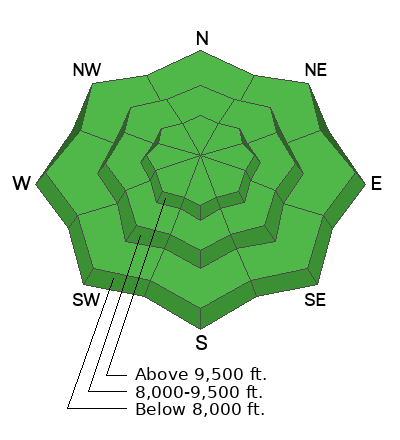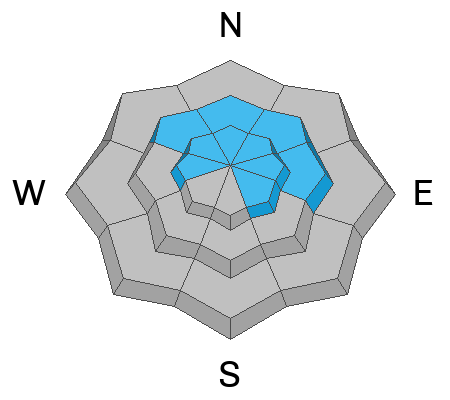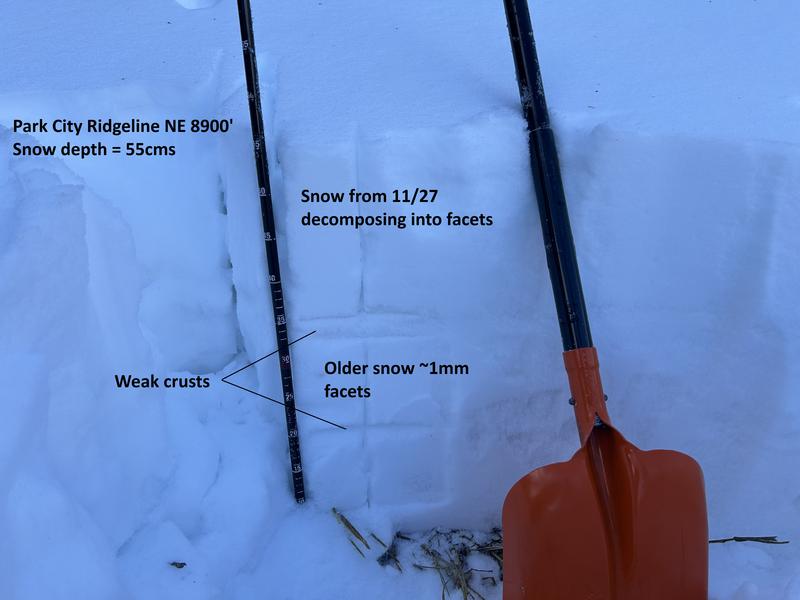This morning, skies are partly cloudy, and for the first time in about a week, there is no temperature inversion. Trailhead temperatures range from the mid-teens to low 20s, while ridgetop temperatures are in the single digits. As of 5AM there has been no measurable snowfall in some places and a trace amount in others. Winds at 9,000-foot ridgelines are blowing from the west at 20 mph, gusting up to 30 mph. At 11,000-foot ridgelines, winds are from the northwest, sustained in the mid-40s mph, with overnight gusts reaching the low 60s mph.
Today, a weak Pacific Northwest storm will bring scattered snow showers to Utah, resulting in minimal accumulations. Snow may linger into the late afternoon or evening before high pressure returns. Expect increasing clouds, with temperatures in the upper teens to low 20s. Winds at 9,000-foot ridgelines will be out of the northwest at 15 mph, gusting to 20 mph, and west-northwest at 30 mph, gusting to 35 mph, at 11,000-foot ridgelines. Snowfall totals will range from a trace to up to 3 inches by evening, with water equivalents of 0.05" to 0.20".
A weak ridge brings dry conditions and above-average temperatures Wednesday, with some valley haze likely but short-lived. A weak storm Thursday into Friday may produce light snow in northern Utah’s higher elevations and help clear the air, though moisture is limited. Another system late Saturday into Sunday could bring slightly more mountain snow, but significant precipitation remains unlikely.







